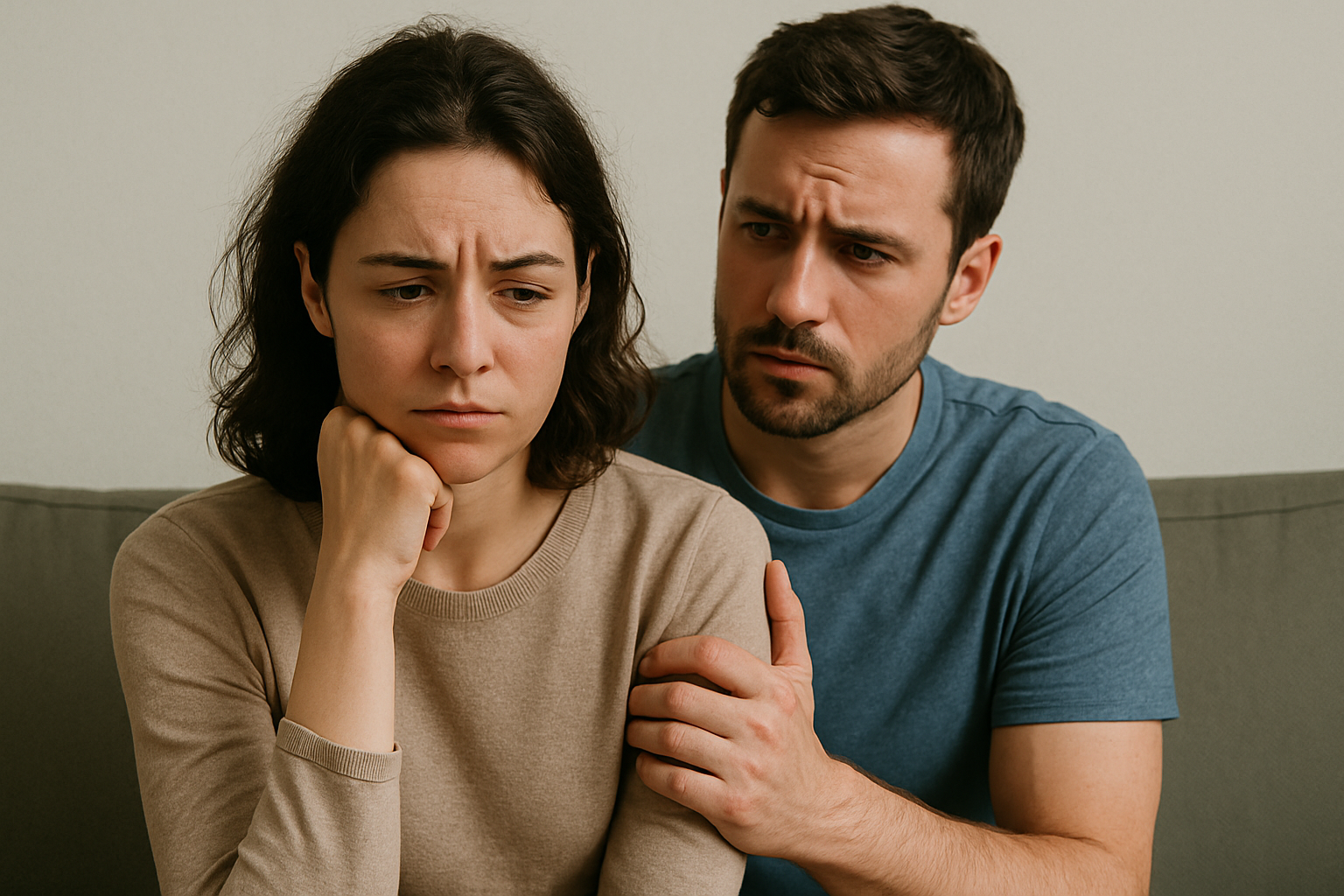Have you ever left a conversation with your partner feeling perplexed, embarrassed, or as though everything was your fault even if it wasn’t? If so, you might have guilt-tripped. More often than we realise, this behaviour can be quite detrimental. Let’s investigate what guilt-tripping in relationships actually entails, how it operates, what warning flags to look for, and how it might compromise your emotional wellbeing.

Acknowledging Guilt in Relationships
In relationships, guilt is not always detrimental. Making a mistake sometimes makes us naturally guilty. It can even enable us to develop closer emotional relationships. Guilt becomes poisonous, though, when it is used as a tool for control, manipulation, or shame of another.
Guilt-tripping is the practice of someone leveraging guilt to achieve their goals. Rather than straight out expressing their emotions, they use subdued remarks or gestures to make their partner uncomfortable. This sets an unhealthy power dynamic over time. In relationships, guilt can develop from a feeling into a kind of emotional control.
Guilt-Tripping Mechanisms
Those who engage in guilt-tripping usually depend on emotional control to shape the behaviour of their partner. They could not even be aware they are doing it. Although their words could sound sympathetic, often the intention is to make the other person feel accountable for their feelings or needs.
Here’s one instance: Your partner’s response, “I guess I’ll just go alone since you’re always too busy for me,” could sound benign. Actually, though, it’s meant to make you feel bad so you’ll adjust your schedule. Regular repetition of this kind of behaviour can undermine your sense of independence and self-esteem.
Symptoms of Guilt-Tripping in Relationships
Protecting your emotional health starts with identifying the warning signals. Here are few typical trends to search for:
-
Continually blaming you: even for events beyond your influence.
-
Making you feel selfish: When you attempt to schedule time for yourself or create personal limits.
-
Bringing up past mistakes: to make you feel guilty in the present will help you to oppose yourself.
-
Sulking or silent treatment: causes you to feel responsible instead of communicating.
-
Notes like “After everything I’ve done for you…” meant to make you feel guilty.
If these behaviours sound familiar, you may be dealing with guilt-tripping resulting from emotional control and dependency.
The Effect of Guilt-Tripping
Guilt has effects in relationships that go beyond our awareness most of the time. Guilt-tripping over time can erode your self-esteem. You start to doubt your own opinions, emotions, and choices. You might stop stating your needs out of concern for upsetting the other person or starting a fight.
Setting reasonable limits becomes more difficult as well from this imbalance. You give in just to avoid guilt, instead of saying “no” when you really ought. Your independence and identity may fade gradually, and the relationship might turn one-sided and draining.
Dependency is still another side effect. When one person uses guilt to control another, the other usually becomes emotionally dependent feeling as though they have to always fix things, make sacrifices, or avoid confrontation. Anxiety, resentment, even depression can follow from this emotional tiredness.
Why Individuals Trip Through Guilt
Often a taught behaviour is guilt-tripping. Those who grew up in homes where guilt was used as a tool for control might return to it in adult relationships. Others could use it because they worry abandonment or feel insecure.
Still, it is never acceptable to use guilt in relationships as a means of emotional regulation. Good communication calls for honesty, openness, and respect not guilt or manipulation.
Handling Guilt-Tripping
Should you identify guilt-tripping in your relationship, here are some responses:
1. One Should Clearly Define Their Boundaries
Start modest. Say things like, “I understand you’re upset, but right now I have to take care of myself.” Learning to save your energy is not selfish; it is rather essential. Maintaining your self-esteem strong and the relationship healthy depends on boundaries.
2. Employ “I” Remarks
“I feel uncomfortable when I’m made to feel guilty for taking time for myself,” says calm and clear communicator instead of blaming back. This turns the emphasis to your feelings and increases the difficulty for guilt-tripping to keep on.
3. Acknowledge the Pattern
Stopping these patterns is easier the more conscious you grow of them. Speaking with a therapist or keeping a notebook will enable you to develop emotional awareness.
4. Avoid Always Apologising
Stop if you find yourself apologising excessively only to avoid confrontation. Ask yourself: Am I merely trying to alleviate the guilt they put on me, or did I really do something wrong?
5. Ask for Help
Clarifying things might come from speaking with a counsellor, friend, or relative. Sometimes we can only see what’s actually happening from outside.
Restoring Equilibrium and Trust
Not fear should form the foundation of a good relationship; trust should do so. Things might change if both spouses are ready to work on their behaviours and enhance their communication. Still, it calls for effort and honesty.
It may be time to review the relationship if guilt-tripping persists even after you have shared your emotions and established limitations. You deserve love that values your independence, self-esteem, and reasonable limits.
Notes of Final Thought
When used as a weapon, guilt in relationships turns destructive. Not only a bad habit, guilt-tripping is a kind of emotional control that can seriously compromise your mental and emotional state. Whether it’s your friend, boyfriend, or family member, you have to be aware of the indicators and act to guard yourself.
Recall: You are not in charge of controlling the feelings of another person at the price of your own peace. Important first steps in breaking the cycle are establishing limits, increasing awareness, and selecting better approaches of relating.
You deserve a relationship in which guilt is not a weapon and love is reciprocal and respect is shared.


